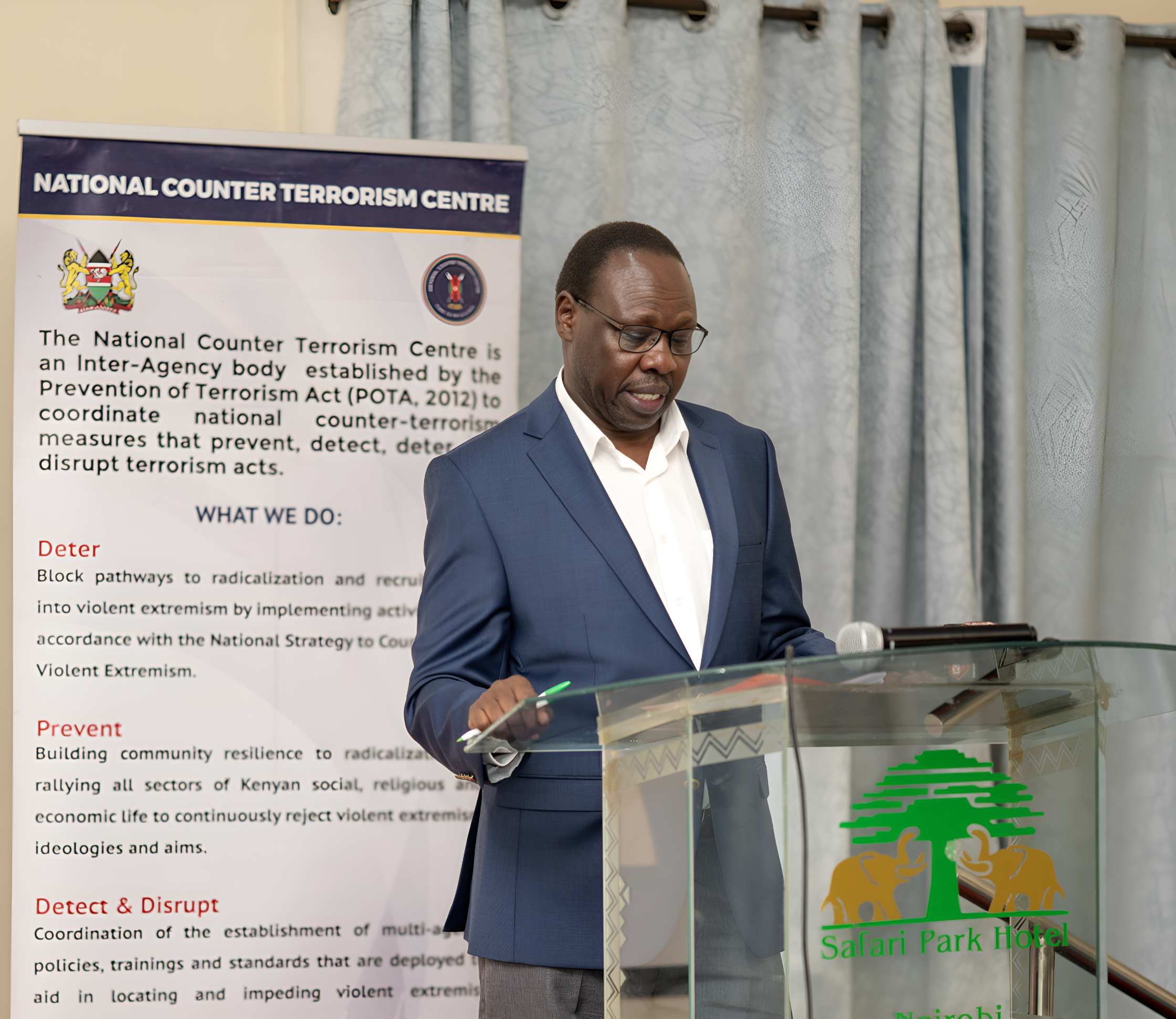Kenya is employing military operations to dismantle terrorist groups and prevent future attacks while simultaneously strengthening ties with local communities to undermine extremist ideologies.
In addition to these security measures, the government has implemented a program designed to help violent extremists and radicalized individuals disengage from extremist activities and successfully reintegrate into society.
Director of the National Counter Terrorism Centre (NCTC), Kibiego Kigen, emphasized the importance of pairing strong military tactics, often called hard approaches with softer strategies such as disengagement, deradicalization, rehabilitation, and reintegration (DDRR).
Hard power tactics include eliminating key terrorist leaders and dismantling terror groups through precise missile strikes and military operations aimed at preventing future attacks.
Kigen highlighted that softer, preventive approaches include engaging religious leaders to provide counter-narratives that challenge extremist misinformation, with a focus on rehabilitation rather than punishment.
The NCTC has warned that violent extremists are targeting vulnerable Kenyan youth for radicalization and recruitment.
Factors such as economic hardship, marginalization, and limited educational opportunities have increased this vulnerability.
In response, the government has implemented a comprehensive strategy to strengthen youth resilience.
"Extremist groups have continually adapted their tactics to exploit young people’s vulnerabilities. This reality calls for more coordinated and inclusive efforts in preventing and countering violent extremism," Kigen stated.
Kigen made these remarks during the Global Counter Terrorism Forum’s East Africa Working Group session on Motivational Engagement for security officers held in Nairobi.
This training forms part of the 2024-2026 Work Plan aimed at improving security personnel’s abilities in receiving, screening, and assessing individuals disengaging from violent extremist groups.
He noted that participants were equipped with crucial skills to support their roles as disengagement officers. “The knowledge and skills gained will significantly contribute to the global fight against terrorism,” Kigen stated.
The event was also attended by Minister Plenipotentiary Mohammed Al Roumi, Deputy Assistant Foreign Minister for Development and International Cooperation Affairs from Kuwait.
According to NCTC, this initiative originated from a thematic workshop on Disengagement, Deradicalisation, Rehabilitation, and Reintegration (DDRR) held in Kuwait City last October.
Kigen explained, "Participants were introduced to the Kenyan Motivational Disengagement model, receiving training in self-awareness and appreciative communication, among other skills, all designed to help individuals disengage from violent extremism."
He emphasized the importance of trainees adapting these skills to develop DDRR programs tailored to their own countries’ disengagement needs.
